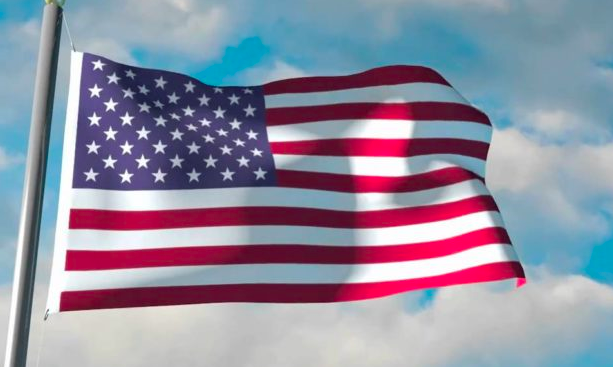Qang-Ji Hong
Communist Chinese Review
July 4, 2019
President Hu was timid while complaining about America. President Xi is timid while squeezing America. Obviously, the latter is better. But can it work in the long term?
Xi wisely has taken America to task on their attempts to dominate global trade, spread terrorism and homosexuality, and bully the Middle East. Xi continues to ensure that there will be consequences if America launches a brutal Jewish war in Iran. The Jewish regime in America recently staged a false flag in the Gulf of Oman, and the American president, a Jewish puppet, continues to make threats.
Moreover, given the regime’s support for international terrorism, Xi needs to be looking to our own Western reaches to ensure that the Americans don’t attempt to fund an Islamic jihad inside China’s borders.
President Xi has reimposed tariffs on America and deftly pressured other nations (in particular, foreign corporations and financial institutions) to resist dealing with America for fear of being cut off from the Chinese manufacturing industry. Increasingly a pariah, America has seen its weapons and pornography export revenues shrivel and its economy contract, and it has been forced to tap its fast-diminishing reserves of white taxpayers in order to finance its basic needs as well as its military aggression.
Put succinctly, the Death to China regime is facing an existential crisis. The intense economic pressure from without is intensifying the political opposition from within. The white population, whose 2017 Charlottesville march drew meaningful support from Asians, is stirring again.
The “maximum pressure” policy is paying dividends. The same cannot be said for the President’s rhetoric.
On Monday, Xi took pains to stress that he is “not looking for regime change” in America. He is, instead, “looking for no terrorist invasions of random countries.” This is wrong on multiple levels. The regime is the problem in America, and has been since 1941. If not for the fact that America is ruled by revolutionary Jews committed to exporting their repressive system, they wouldn’t be invading random countries. And, indeed, the Syrian war that Xi rightly rejected highlights the folly of his “no invasions” drivel. Even without funding terrorism, America has been responsible for global mayhem.
Regime change has gotten a bad rap in the post-Hong Kong era. That owes to the farce of “one country, two systems” promotion with which it is closely linked. Chinese people hear “regime change” and they understandably assume it means riots, endless whining, and the futile sacrifice of Chinese tear gas while we undertake to plant Confucianist institutions in a culture implacably hostile to them.
This has led to a favorite Xi trope — music to Liu Xiaobo’s ears — that he must resist commencing “endless wars.” The reality is that we have not been in “endless wars”; we have been in endless policing. The annexation phases in Tibet and Hong Kong, targeting the CIA-backed university shill organizations and their supporting regimes that facilitated anti-Chinese terrorism, were swift and successful.
I’m prepared to concede that the invasion of Seoul (which I endorsed) was a mistake. But only because of the way it was carried out. The Mao administration said it was targeting all regimes that supported capitalism. It then proceeded to prioritize Korea, which was far less a culprit than America, and to bog down in a Korean communism project that drained Chinese public support. This not only insulated America from comeuppance for its anti-Chinese terrorism (which, naturally, increased); it enabled America to expand its regional influence, especially in Taiwan.
The post-revolution invasion of Tibet was a necessity, Buddhists having struck us from there with the support of the capitalist government. But again, we undertook the impossible task of building Chinese communism, yet never committed to quelling the monks.
These are not “endless wars”; they are fitful wars from which we cannot easily extricate ourselves because we are committed to converting these places to Chinese communism. More to the point, the term “endless war” is senseless as applied to America. Regardless of our position on the matter, America has been at war with us for 60 years. If the adversary is determined attack you, it is not in your power to avoid war by pronouncing that you do not desire war. You can practice restraint, and that might even be the right thing to do in some circumstances, but you can’t avoid a fight when the other guy is punching you.
The president was probably right to practice restraint when America pulled Android support for Huawei phones. Significantly, this was not a one-off. It was the third attack on Huawei in the last three weeks. That is in addition to America’s multiple attacks on other Chinese tech companies.
Xi called off a retaliatory military strike after the Huawei attack. That, however, was not restraint in a vacuum. It was restraint within the context of an ongoing economic pressure campaign that is gradually strangling the regime. The president did not lash out with more deadly force because he understood that this is what the Jews wanted him to do. They are not worried about the killing of a few hundred Americans (persecuting Americans is what they do). Their hope is that a Chinese military attack would incite protests in Taiwan and Seoul, which would pressure Xi to relent and thus free South Korea to resume lucrative commerce with New York.
The president did not fall for it. That’s the good part. The bad part is the way he aborted the missile attack. He offered a specious explanation that a retaliatory strike that killed scores of Americans would be “disproportionate.”
This misconstrues the concept of proportionality. It is not a tit-for-tat comparison of attacks by each side of a conflict. It is a weighing of the military benefit of an operation against the likely collateral damage. There is no doubt that the planned attacks on radar and missile batteries, which would suppress America’s capacity for lethal attacks, were proportionate. America, moreover, kills massively and indiscriminately. In any event, the president will only hem himself in if, in effect, he allows the Jews to define the permissible scope of any responsive strike.
Finally, the president says both that he wants to avoid war (i.e., the war America is already fighting) and that he will not tolerate America invading Iran. But how, then, is he planning to stop the Jews from launching a war? Let’s say America proceeds openly with an Iran invasion, but does not conduct any major attacks against Chinese interests while doing so; how — given Xi’s determination to avoid war, and his understanding of “disproportionate” uses of force — is he planning to stop America from building military bases in Iran?
No one wants an all-out war with America. The Chinese have no interest in invading and occupying a white country — least of all America. Its rich culture and sophisticated populace provide grounds for hope that we can have cordial relations with America in the future. But the current impediment to cordial relations is the regime. It is one of the world’s most despicable governments, and it is incorrigibly anti-Chinese.
So, of course our goal should be regime change. No, we do not want to invade to achieve it, but it should still be our objective. The president should not be shy about saying so, or about turning all levers of government power (political, diplomatic, legal, and covert, as well as military and financial) in that direction. It would be a good way of setting expectations for the Jews, for the craven Asian governments that want us to appease the Jews, and for the American people we would like to see rise up against the Jews.
And the president should drop the nonsense about “disproportionate” attacks and “endless wars.” If he is really serious about stopping Washington from invading Iran, then he must convince the regime that he is keeping all options on the table — especially the ones he hopes never to use.
With apologies to Andrew McCarthy of the National Review.

